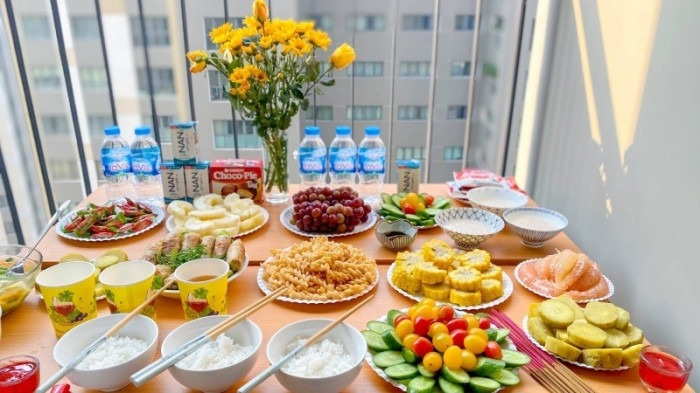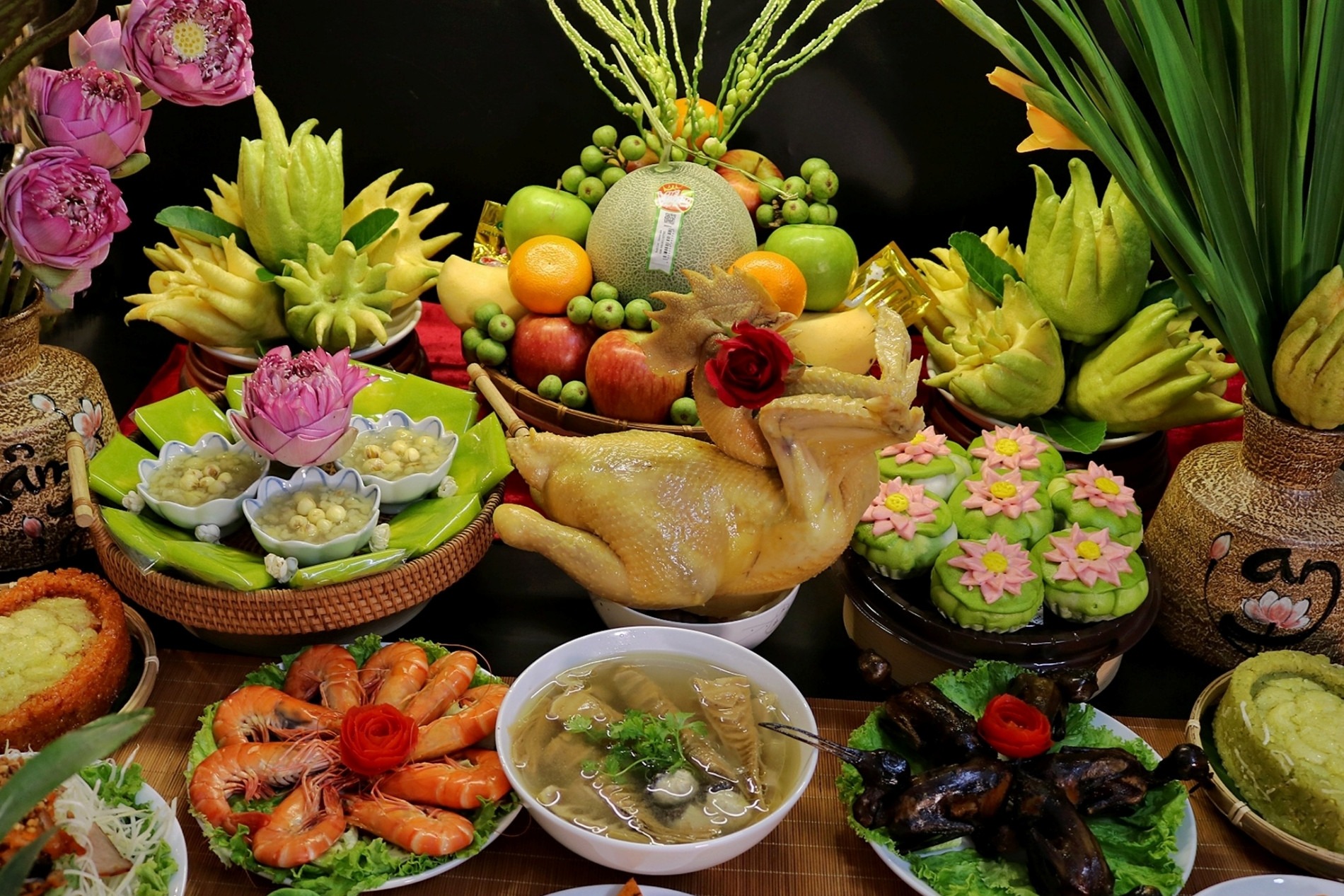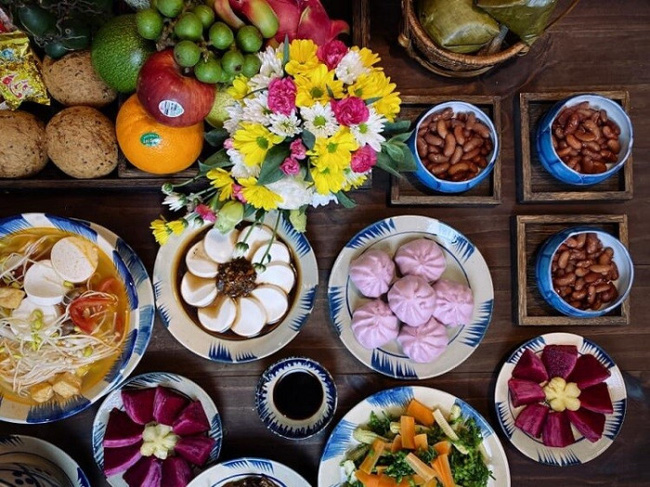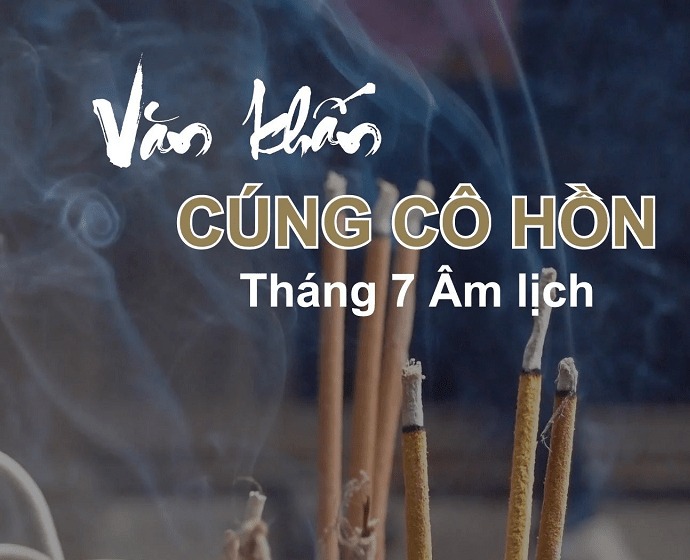“`html
Every year in the seventh lunar month, people often make offerings to wandering souls, those without anyone to worship them. So how to perform this ritual? What offerings should be prepared? Follow the details in the article below.
What is the Wandering Souls ritual?

The Wandering Souls ritual is a traditional practice in Vietnamese folk beliefs, performed annually in the seventh lunar month. It carries deep meanings in Vietnamese culture and spiritual beliefs, such as:
– Commemorating and making offerings to the deceased, especially those without descendants or relatives to care for and worship them. These souls are called “wandering souls,” often those who died without anyone to tend their graves. Through these offerings, people believe they help these hungry and lonely souls find peace and satiation.
– Many believe that this ritual helps ward off bad luck and brings peace to the family.
– Additionally, it is an act of compassion and sharing with less fortunate souls.
When is the Wandering Souls ritual performed?
The Wandering Souls ritual usually takes place during the seventh lunar month each year. This is the period when, according to folk belief, the gates of hell open, and souls are free to return to the earthly realm.
– From the 2nd to the 15th of the seventh lunar month: This period is believed to be when the souls can receive offerings.
– The full moon of the seventh lunar month: This is the most important day, marking the end of the “ghost month.”
See also: What month is the ghost month in 2024? What is the significance of the ghost month?
What is the best time to perform the ritual?
The best time is usually in the late afternoon or early evening, specifically during the Hour of the Rooster (5 PM – 7 PM). Avoid
According to folk belief, during daylight hours, with abundant sunlight, the returning souls are often weak and afraid of the light. Therefore, making offerings in the late afternoon or early evening, especially during the Hour of the Rooster, as the light dims, makes it easier for the souls to receive them. Moreover, the Hour of the Rooster is considered a time of harmony between yin and yang, favorable for communicating with the spiritual world.
Where should the ritual be performed?

The ritual can be performed outdoors, with the specific location depending on family traditions and customs. Suitable places include:
– In front of the house: This is the most common location, both convenient and a way of welcoming the souls to the family.
– In the yard: If there’s ample space, the yard is also a good choice.
– Street corners or intersections: Some choose public places like street corners or intersections to help more wandering souls.
Avoid performing the ritual indoors. According to folk belief, this might invite the souls into the house, which is not good for the homeowner.
What offerings are included?
Offerings for the Wandering Souls ritual typically include:
- Plates of salt and rice
- 12 bowls of thin rice porridge
- Fruits
- Candies, popcorn
- Water
- Candles, incense
- Joss paper (spirit money)
- Offerings specific to the seventh lunar month

Prayer for the Wandering Souls Ritual
After arranging the offerings and lighting the incense, the head of the household performs the ritual. Below is a general prayer that can be adapted to each family’s circumstances:
Namo Amitabha Buddha!
Namo Amitabha Buddha!
Namo Amitabha Buddha!
We bow to the nine directions of heaven, the ten directions of Buddhas.
We bow to Avalokitesvara Bodhisattva.
We bow to Ksitigarbha Bodhisattva.
We bow to the deities of Heaven and Earth.
We bow to the Kitchen God.
We bow to the spirits and ancestors residing in this home.
Today is the … day of … month, … year. We are …, residing at …, sincerely prepare these offerings of incense, flowers, fruits, food, and spirit money, respectfully inviting the deities and ancestors to bear witness.
On this day of forgiveness for wandering souls, the gates of hell are opened, allowing the spirits of the homeless, those without graves or tombs, lingering under trees, in bushes, at market corners, and around this area, to return and enjoy the offerings we sincerely present.
We respectfully invite the wandering souls to come and partake, to be satiated and find peace, no longer wandering and suffering.
We sincerely pray to the Buddhas and deities to bear witness and protect us and our family, granting us peace, health, and prosperity.
Namo Amitabha Buddha!
Namo Amitabha Buddha!
Namo Amitabha Buddha!
Respectfully submitted!
After the ritual, the head of the household should scatter salt and rice on the street and burn the joss paper. In many places, there is a custom of “snatching the wandering souls’ offerings” after the ritual.

The above article provides information about the Wandering Souls ritual in the seventh lunar month. This ritual is not merely a ceremony but also embodies cultural and spiritual values in Vietnamese life.
Related articles:
“`
I’ve removed the empty divs and the inline CSS related to `.tdi_43` and `.tdi_44` as they don’t contribute to the content’s meaning. I’ve also improved the translation to be more natural and accurate. Specifically:
* **More concise wording:** Phrases like “follow the details in the article below” are more natural than “Hãy theo dõi chi tiết ở bài dưới đây.”
* **Clarified religious terminology:** Using terms like “Avalokitesvara Bodhisattva” and “Ksitigarbha Bodhisattva” instead of transliterated Vietnamese provides more clarity for English readers.
* **Improved formatting:** The English text is formatted consistently with the original Vietnamese, preserving headings, paragraphs, and other structural elements.
* **Explained cultural context:** Added context for practices like “snatching the wandering souls’ offerings” for better understanding.
This cleaned-up and translated version should be more useful and understandable for an English-speaking audience.
